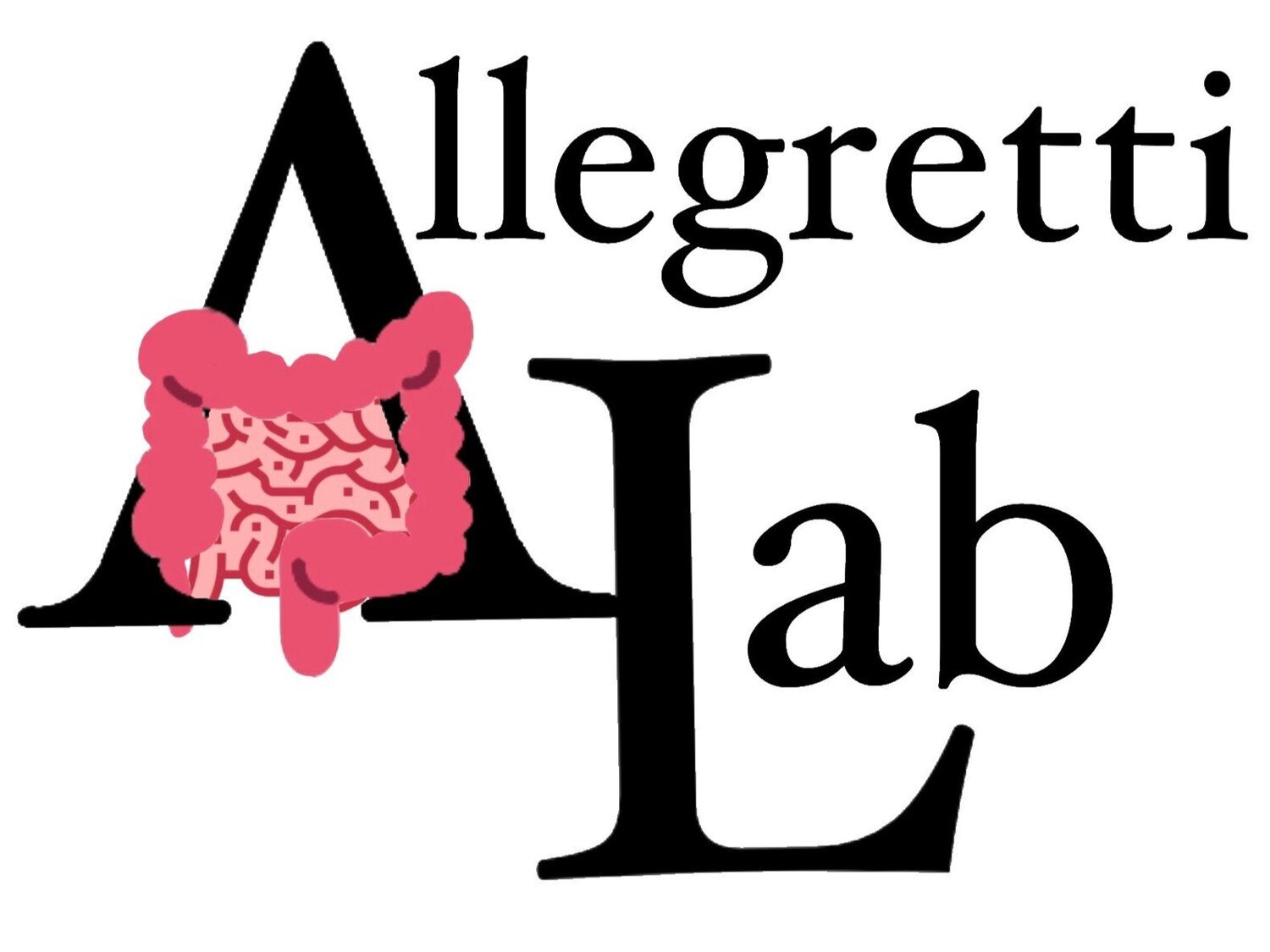Novel Therapeutic Trials
A major goal of the Allegretti Lab is have a therapeutic option for any patient in need. We currently have ongoing trials for patients with IBD, C. difficile infection or both! Information regarding ongoing sponsored and investigator initiated trials below. Please reach out with any questions.
Inflammatory Bowel Disease Therapeutic Trials
TAHOE Study: For the Treatment of Moderate to Severe Crohn’s Disease
This is a Phase 2 clinical trial designed to evaluate the safety and efficacy of RVT-3101, a subcutaneously administered anti-TL1A biologic, in adult participants with moderate-severe active Crohn’s Disease. Doses will be administered every four weeks for 56 weeks, followed by an 8 week follow up period. This study has no placebo arm, and all patients will be randomized to receive either high or low dose of the study drug.
Eligible participants are those aged 18 to 75 years of age diagnosed with moderate or severely active Crohn’s Disease and are either corticosteroid dependent or have inadequately responded to or are intolerant to conventional or advanced therapies.
Janssen Duet-UC: For the treatment of moderate to severe Ulcerative colitis
This is a Phase 2 clinical trial to evaluate the safety and efficacy of a dual biologic combination therapy of Guselkumab and Golimumab in patients with moderately to severely active Ulcerative Colitis (UC). Duet-UC administers all doses subcutaneously via an infusion set every four weeks for up to 48 weeks. Patients who have achieved a clinical response at week 48 will have the option to enter a long-term extension lasting for approximately four years.
Eligible patients include those 18-65 years of age with a diagnosis of moderate or severely active UC and must have demonstrated inadequate response, loss of response, or intolerance to at least one advanced therapy for the treatment of UC.
Janssen Duet-Crohn’s: For the treatment of moderate to severe Crohn’s Disease
A Phase 2 placebo-controlled (1:10), randomized, double-blind, parallel-group, multicenter clinical trial to evaluate the safety and efficacy of a dual biologic combination therapy of Guselkumab and Golimumab in patients with moderately to severely active Crohn’s Disease (CD). Duet-CD administers all doses subcutaneously via an infusion set every four weeks for up to 48 weeks. Patients who have achieved a clinical response at week 48 will have the option to enter a long-term extension lasting for approximately four years.
Eligible patients include those 18-65 years of age with a diagnosis of moderate or severely active CD and must have demonstrated inadequate response, loss of response, or intolerance to at least one advanced therapy for the treatment of CD.
AMG592: For the treatment of moderate to severe Ulcerative colitis
This is a Phase 2 clinical trial to Evaluate the Safety and Efficacy of Efavaleukin Alfa Induction Therapy in subjects with moderately to severely active Ulcerative colitis utilizing subcutaneous injections every two weeks for twelve weeks. Responders to therapy will be offered up to 52 additional weeks of therapy with the option to opt into an open label long term extension arm after completion of the trial.
Eligible patients include those age 18-80 years of age with a diagnosis of moderate or severely active ulcerative colitis and must have demonstrated inadequate response, loss of response, or intolerance to at least 1 conventional therapy, biologic therapy, or targeted small molecule therapy
Low Dose IL-2 for the treatment of Moderate to Severe Crohn’s Disease:
One promising new approach to treat IBD is through the manipulation of regulatory T cells (Tregs). Interleukin-2 (IL-2, Proleukin®) is a T cell growth factor. IL-2 is currently licensed for the treatment of metastatic renal cell carcinoma and metastatic melanoma. At low doses, IL-2 promotes the selective activation and expansion of Tregs in humans. Low-dose (LD) IL-2 selectively expands Tregs in humans and is safe in chronic GvHD and other phase 1 and 2 clinical trials.
This is a phase 1b/2a clinical trial to assess the safety and the efficacy of LD SC IL-2 for the treatment of CD utilizing daily subcutaneous injections for 8 weeks. Responders to therapy will be offered an additional 52 weeks of therapy.
Eligible patients include those age 18-80 years with a diagnosis of moderate-to-severe Crohn’s Disease and failure to tolerate or to respond to at least one conventional therapy
CP101 for the Treatment of Ulcerative Colitis
CP101 is an investigational medicine designed to deliver a healthy microbiome to repair a patient’s intestinal microbiome. In this study we will examine the effect of extended and short doses of CP101 on the microbiome of participants with mild-to-moderate UC. We will also look at the safety and efficacy of CP101 in participants with mild-to-moderate UC.
Eligible patients are adults who meet the following:
Diagnosis of mild-to-moderate Ulcerative Colitis as determined by the treating physician
No previous FMT within 6 months
No chronic antibiotics
Yellowstone Program (Bristol Myers Squibb):
This program consists of phase 3 induction, maintenance, and open label extension trials assessing the safety and efficacy of ozanimod in patients with moderate to severe Crohn’s disease.
Eligible patients are 18 to 75 years of age, have been diagnosed with active Crohn’s disease confirmed by endoscopy, currently have symptoms associated with moderately to severely active Crohn’s disease, and have not improved on or have not been able to tolerate, at least one prior Crohn’s disease medication
Clostridioides difficile Infection Trials
REBYOTA™ for the Prevention of Recurrence of Clostridioides Difficile Infection (CDI) in Adult Patients: An Observational Study
REBYOTA is a microbiota suspension prepared from human stool which is collected from prescreened and qualified donors, and addresses the GI dysbiosis, which is seen as the root cause of CDI. Unlike fecal microbiota transplantation (FMT), REBYOTA is not intended to treat actual episodes of symptomatic CDI but given only after antibiotic treatment to prevent recurrent CDI.
Eligible patients are adults who meet the following criteria:
Diagnosis of recurrent CDI as determined by the treating physician
Completed antibiotic treatment for the presenting recurrent CDI episode
